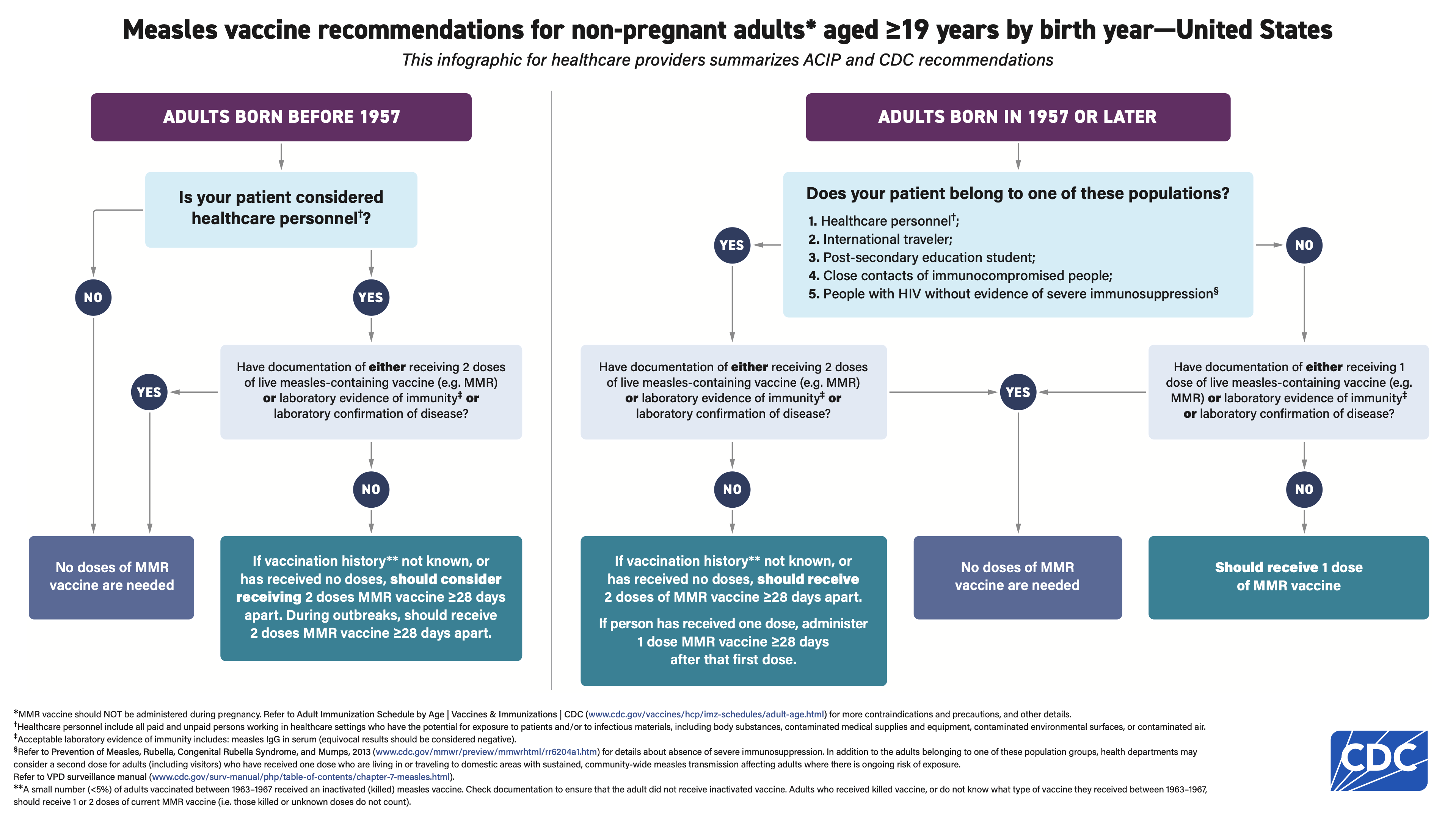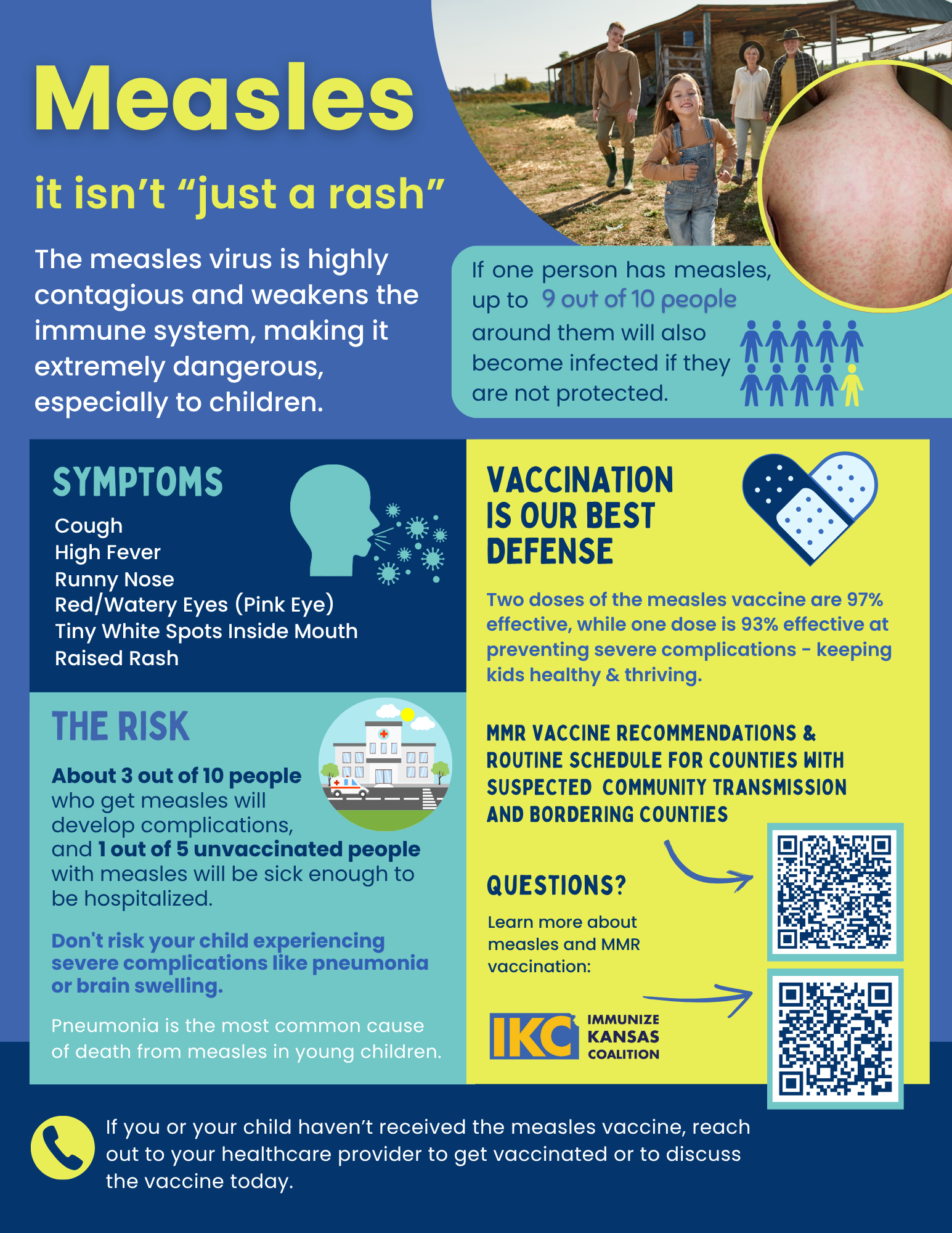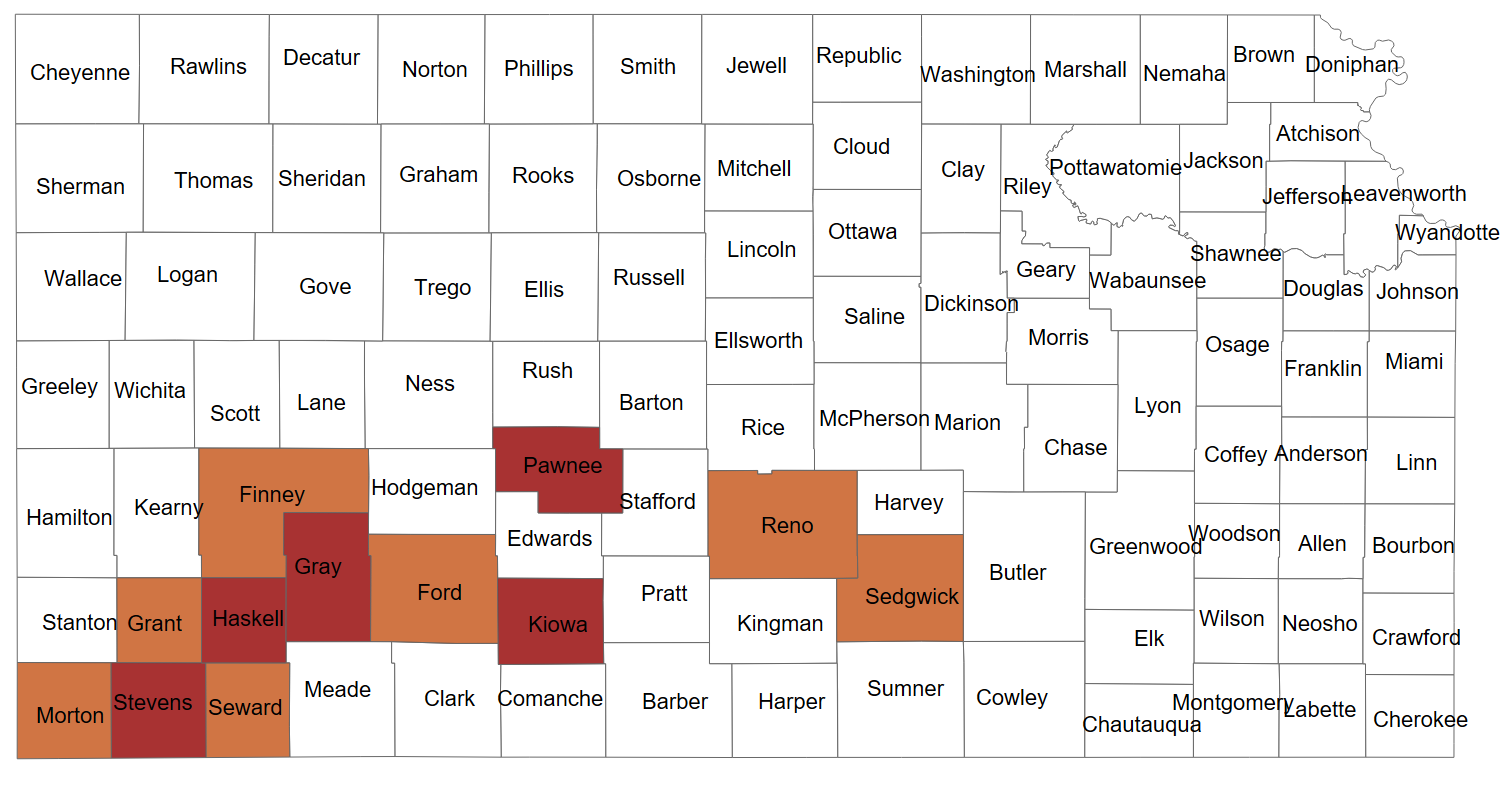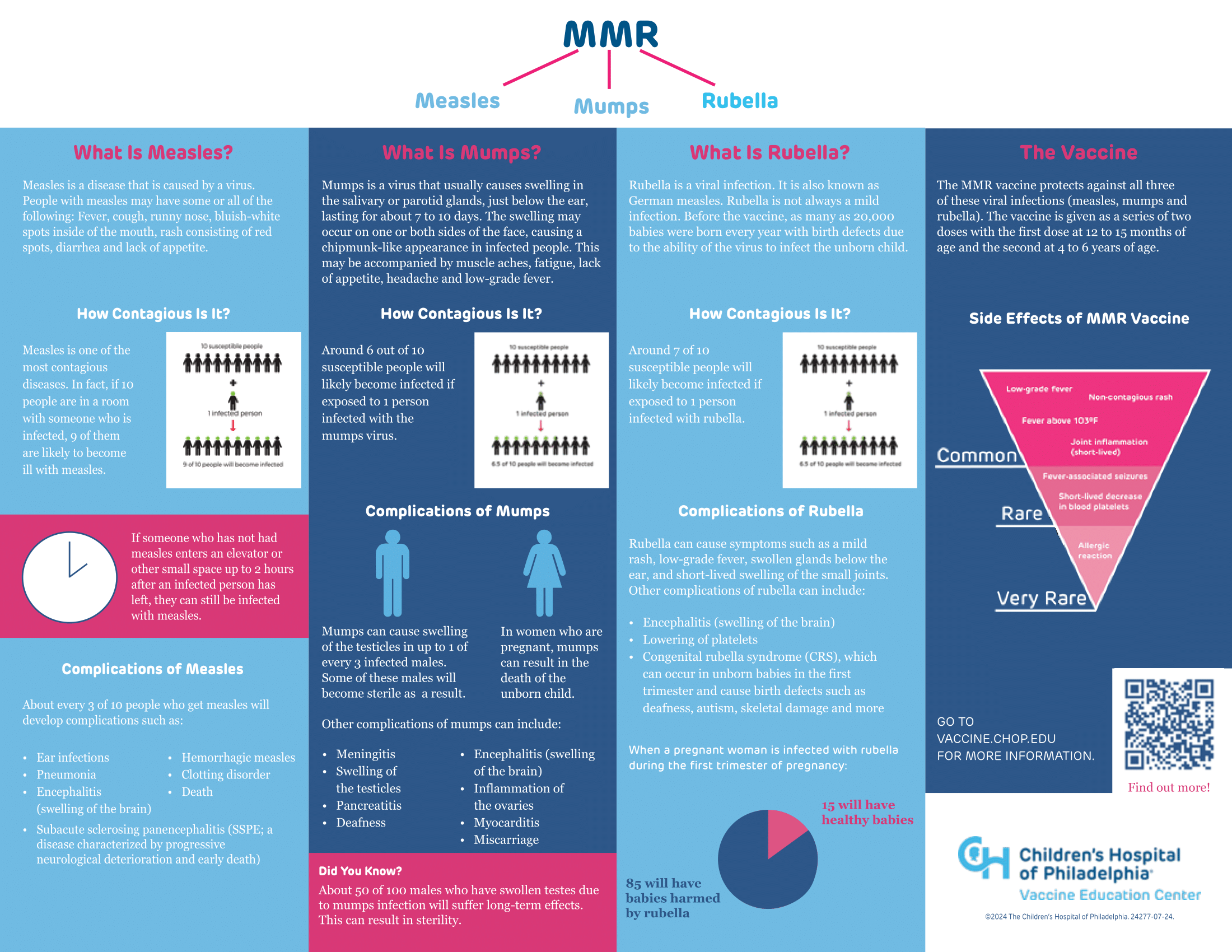.png)
.png)
IKC is pleased to share the latest measles/MMR vaccine information and resources. This page will continue to be updated and monitored.
Social Media Toolkit + Sharing
Visit "Protect Against Measles" CampaignIKC has a social media toolkit and flyers available in English in Spanish to share during your outreach efforts.
IKC's "Ask a Doctor" Series
Check Out IKC's "Ask a Doctor" SeriesIKC has created a series of short-form vertical videos with Gretchen Homan, M.D., FAAP, to answer common questions about measles and the MMR vaccine.
Measles/MMR Vaccine Resource Hub
Measles (rubeola) is more than “just a rash,” it's a highly contagious viral illness that can cause severe health complications, including pneumonia, encephalitis (inflammation of the brain), and death, especially in
unvaccinated individuals.
With the rising outbreaks of measles across the United States, and the first measles-related death in a decade, it's crucial to stay alert and informed. Understanding measles, its symptoms, and how to stay protected is essential for keeping our communities safe.
- Measles is highly contagious. If one person has it, up to 9 out of 10 people nearby will become infected if they are not protected. (source: CDC)
- Your best defense against measles is a measles, mumps, and rubella (MMR) vaccine, with two doses being 97% effective at preventing measles (one dose is 93% effective). The vaccine can also prevent or reduce the severity of infection if administered to an unvaccinated person within 3 days after an exposure. (source: KDHE, Immunize.Org)
- The MMR vaccine can keep a child in school if they are exposed but vaccinated.
Cases, Current Outbreaks, and News
To follow current measles cases in Kansas, use KDHE's 2025 Measles Outbreak Dashboard.- Special Alert: Approval of Updated CDC COVID-19 and MMRV Recommendations
- CDC Measles Cases and Outbreaks
- AAP "Leaders Combating Misinformation Amid Measles Outbreak, Stress Importance of Vaccination"
- IKC News IKC Launches New Pages Amid Rising Cases and Outbreaks
- NNIC News Immunize Kansas Coalition expands its “Protect Against Measles” campaign with Spanish resources and new graphics to combat misinformation
- Other Kansas News
Health Advisories
- Kansas Health Alert Network (KS-HAN):
- Local and State Health Reports or Health News:
About Measles
- KDHE Measles (Rubeola)
- Vaccineinformation.org Measles Info
- CDC MMR Vaccine Info
- NFID Measles (FAQ)
- Healthy Children Measles: What Parents Need To Know
General Resources for Parents & Community
Symptoms
- High fever (may spike to more than 104°F)
- Cough
- Runny nose (coryza)
- Red, watery eyes (conjunctivitis/pink eye)
- Small raised bumps may also appear on top of the flat red spots.
- The spots may become joined together as they spread from the head to the rest of the body.
- When the rash appears, a person's fever may spike to more than 104° Fahrenheit.
Complications
Measles can be serious in all age groups. However, children younger than 5 years of age, adults older than 20 years of age, pregnant women, and those with weakened immune systems are more likely to suffer from measles complications.
- Ear Infections
- Diarrhea
- Hospitalization
-
About 1 in 5 unvaccinated people in the U.S. who get measles is hospitalized.
-
As many as 1 out of every 20 children with measles gets pneumonia, the most common cause of death from measles in young children.
-
About 1 child out of every 1,000 who get measles will develop encephalitis (swelling of the brain). This can lead to convulsions and leave the child deaf or with intellectual disability.
-
Nearly 1 to 3 of every 1,000 children who become infected with measles will die from respiratory and neurologic complications.
-
If you are pregnant and have not had the MMR vaccine, measles may cause birth prematurely, or have a low-birth-weight baby.
What to do if you've been exposed to measles
If you suspect you or one of your family members has been exposed to measles, call your healthcare provider or local health department immediately - please do not go directly to your healthcare provider or health department. Measles is the most contagious disease known to exist, and it could easily be spread to others at a doctor's office or health department if proper precautions aren't taken prior to your arrival.
If an individual has known exposure to someone with measles and they are not immune through vaccination or prior infection, they are recommended to:
- Consult with a health care provider immediately to determine if post-exposure prophylaxis is recommended.
- Exclude themselves from public settings for 21 days from the last time they were exposed unless symptoms develop.
- If symptoms develop, individuals should notify their local health department and stay away from public areas until four days after the rash appeared. Individuals seeking health care are advised to call ahead to their health care provider and let them know their symptoms and exposure concerns. This will help limit exposure within the healthcare setting. There is no treatment or cure for measles. Medical care is supportive and can help relieve symptoms and address any complications that may develop.
An MMR vaccine can also prevent or reduce the severity of infection if administered to an unvaccinated person within 3 days after an exposure (source: KDHE)
How to stay protected through vaccination
The best defense against measles is the MMR vaccine, with two doses being 97% effective
against measles (one dose is 93% effective). The vaccine is given in two doses: the first dose at 12 to 15 months of age, and the second at 4 to 6 years of age.
The American Academy of Pediatrics (AAP) recommends routine measles vaccination, with early vaccination advised in special circumstances such as international travel or community outbreaks. The AAP encourages clinicians and parents to follow state and local recommendations. In some cases, early or additional doses of the MMR vaccine may be recommended beyond the routine MMR vaccination schedule. For example, health departments may recommend:
- Infants 6 through 11 months receive an early dose of MMR vaccine (i.e., infant dose). Subsequent doses should follow CDC’s recommended childhood schedule:
- Another dose at 12 through 15 months of age and
- A final dose at 4 through 6 years of age.
- Note: The above only applies to the MMR vaccine. The MMRV vaccine is NOT recommended for infants under 12 months old
- Healthy Children How to Protect Your Children During a Measles Outbreak
- AAP Healthy Children Protecting Your Baby from Measles (FAQ)
Recommendations for travelers
Are there MMR recommendations for travelers? Yes.
- Talk to your healthcare provider about the MMR vaccine, especially if you or your child plan to travel to an area with an ongoing outbreak or internationally. Two doses of MMR vaccine provide better protection (97%) against measles than one dose (93%).
- After domestic travel to an area with an ongoing outbreak or international travel, watch for signs and symptoms of measles for 3 weeks after returning to the United States. If you or your child gets sick with a rash and a high fever, call your healthcare provider. Tell them you traveled to an area where they identified measles or another country and whether you or your child had received MMR vaccine.
Sharing About Measles/MMR Vaccine
- KDHE Measles Toolkit
- NFID Measles Awareness Graphics
- CDC Measles Videos
- CHOP MMR Infographic
- CDC Be Ready for Measles Toolkit
- PHCC Measles Page
Answers to Common Questions and Concerns
- Healthy Children Measles Facts: Test Your Knowledge
- CHOP Vaccines Do Not Cause Autism
- NFID Measles and Vitamin A: 3 Things Parents Need to Know
- AAP Vitamin A + Measles Myths & What Actually Prevents Measles
- IKC Vaccine Fears Overturned By Facts Booklet
- IKC Vaccine Fears Overturned by Facts: Is Herd Immunity Real?
- IKC Vaccine Fears Overturned by Facts: Sanitation
- IKC Ask a Doctor: What do you Want Parents to Know About Measles and How to Prevent it?
- IKC Ask a Doctor: Do Vitamin A Supplements Help Prevent Measles?
Resources for Providers
Mandated Reporters, including clinicians, are required by Kansas Administrative Regulation (K.A.R. 28-1-2) to report by phone all suspected cases of measles to the 24/7 KDHE Epidemiology Hotline (877-427-7317, option 5) within four (4) hours of suspicion to facilitate rapid testing and investigation. Please do not wait for test results. Be prepared to provide detailed information on clinical presentation, immunity status, and recent exposure history. Laboratories are required by K.A.R. 28-1-18 to report laboratory results of measles to KDHE using an approved electronic method.
- IKC Diseases & Real-Life Consequences Flyer
- Immunize.Org Measles Clinical Resources
- CDC Measles Clinical Overview
- CDC Public Health Resources
- Merck A Guide to Differential Diagnosis: Selected Rash/Illness in Children
- AAP Recognizing and Addressing Measles in Pediatric Practice
- AAP Measles Vaccine
- KDHE Measles Resources and Reporting Information
- CDC Be Ready for Measles Toolkit
- KDHE Characteristics of a Measles Rash
-
CDC Measles Vaccine Recommendations for Non-Pregnant Adults Aged ≥19 Years Old (See Below)




.png)

.png)
